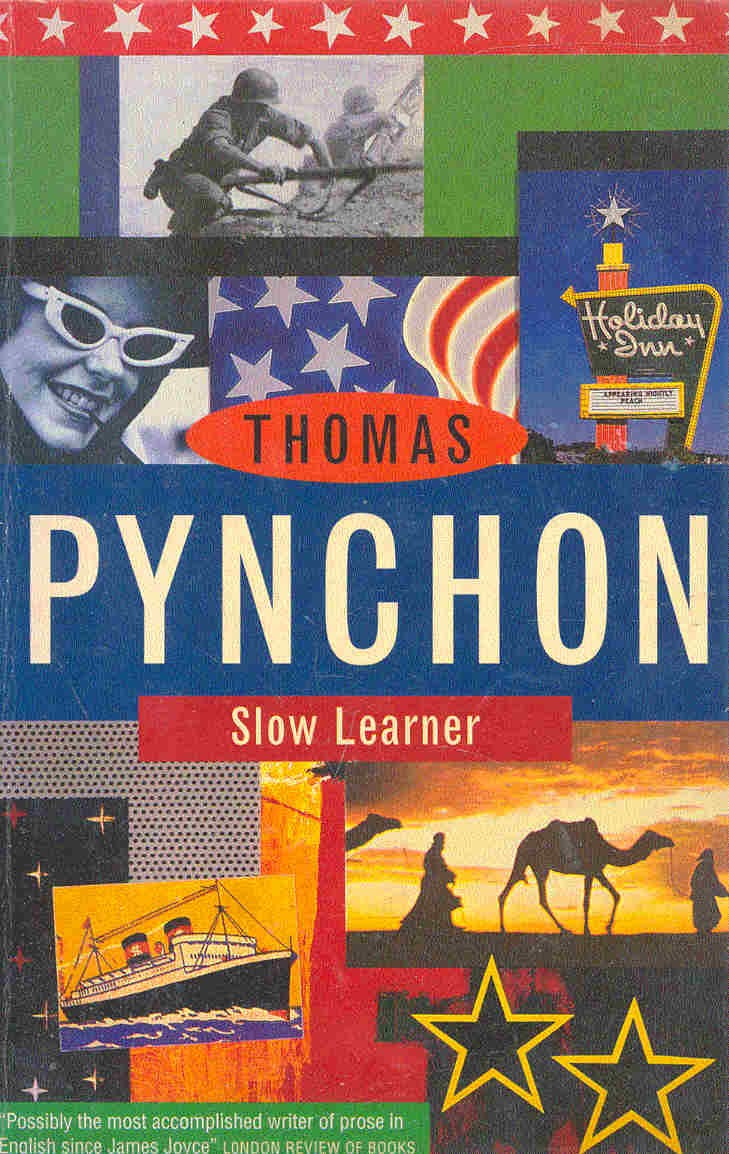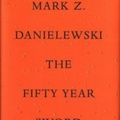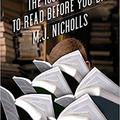Thomas Pynchon: Slow Learner

After reading The Crying of Lot 49 last year, I became enthusiastic to read any other Pynchon books I could lay my hands on. So when it turned out that one of my colleagues owns a copy of Slow Learner, I was happy to accept his offer that he lends me the book. Slow Learner is a collection of five short stories that Pynchon wrote early in his career, and I was quite eager to read them, as I had only read one of his short stories, "Entropy" earlier, and I loved that so much that I wanted to know if he could write other stories which were similarly good.
As I adore both The Crying of Lot 49 and "Entropy", I was greatly biassed towards this volume, and it is not easy for me to admit that the book was quite a disappointment, even though it started out in a highly exciting way: Pynchon himself wrote a preface to the decade-old stories, and this must have been quite an event in the life of such a reclusive author who avoids every kind of personal interaction with his audience. No wonder that I devoured the pages of the preface and I tremendously enjoyed Pynchon's wit and style. But then a strange thing occurred: because of Pynchon's preface, I lost my interest in the stories themselves, or at least my attitude towards them underwent a great alteration and I could not really appreciate them when I finally got around to reading them.
Here is what happened. In the preface Pynchon takes each of the five stories one after the other, and systematically disparages them, while displaying huge reserves of self-irony and wit. However, it is not only that the older, more experienced and more mature Pynchon mildly ponders over the deficiencies of his early writings. It seems to me that he positively relishes in disclosing his earlier weaknesses: his penchant for choosing a scientific or philosophical concept first, and then writing the story around it; his pretense that he is an expert in a lot of different American dialects even though this is hardly the case; his tendency to fill his stories with words he likes, regardless of (and sometimes not even knowing) their meanings; or his habit of using his characters only as illustrations of certain concepts, and failing to fill them with life in the meantime.
True, it is immensely entertaining to read these trains of thought, since Pynchon's irony is virtually inexhaustible, but this was basically all I could get out of this book. After reading twenty pages of ruthless (though funny) self-criticism I automatically kept looking for the faults in the stories, and only wanted to find the parts in each of the stories that the mature Pynchon criticizes in the preface.
But even if I could forget my obsessive search for faults, the stories on the whole still failed to impress me, and I only liked two out of the five. One of these was "Entropy": I found this story just as fascinating and creepy now as five years ago when I had first read it. The other good one was "Secret Integration", which is a happy blend of humour, mystery and a distressing picture of contemporary society.
In this post I would rather not go into the storylines themselves. As these are short stories, and one is quite different from the other, I cannot give you any idea of the whole volume if I write about one specific story only, and I certainly do not want to outline all five here. So I will only add one piece of advice: if you want to enjoy the stories and form your own opinions without the author's influence, make sure you leave the preface to the end.





